#people of Siberia
Explore tagged Tumblr posts
Text
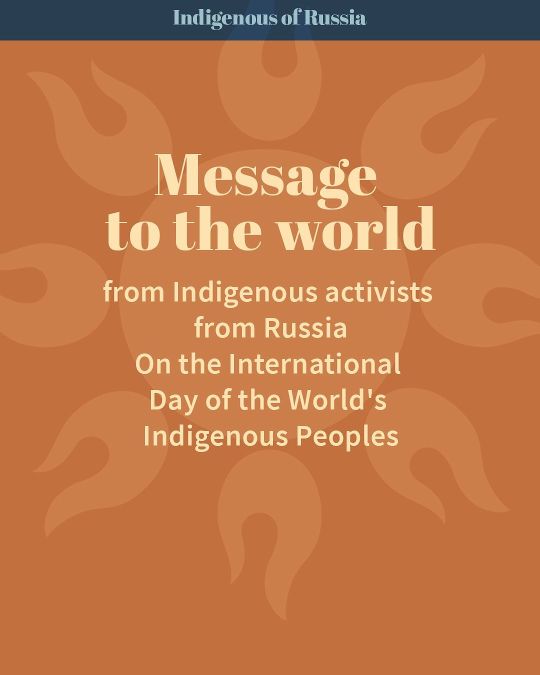
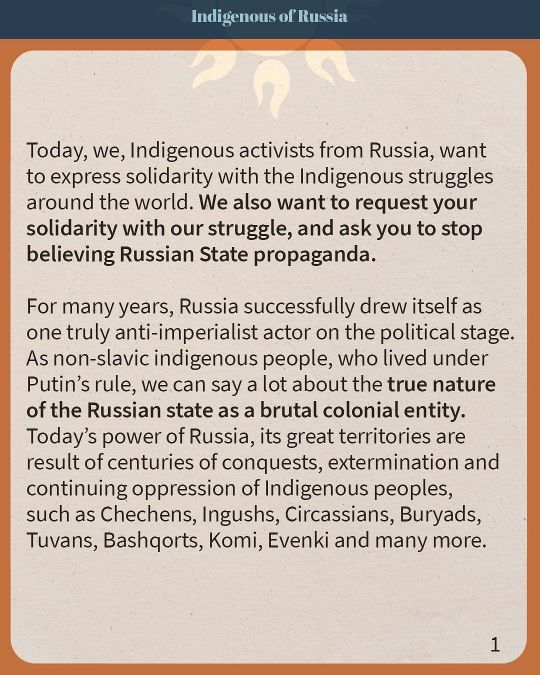

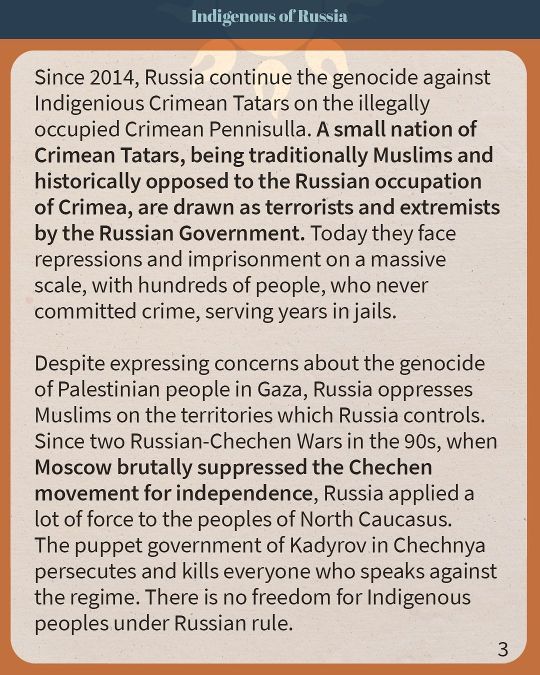
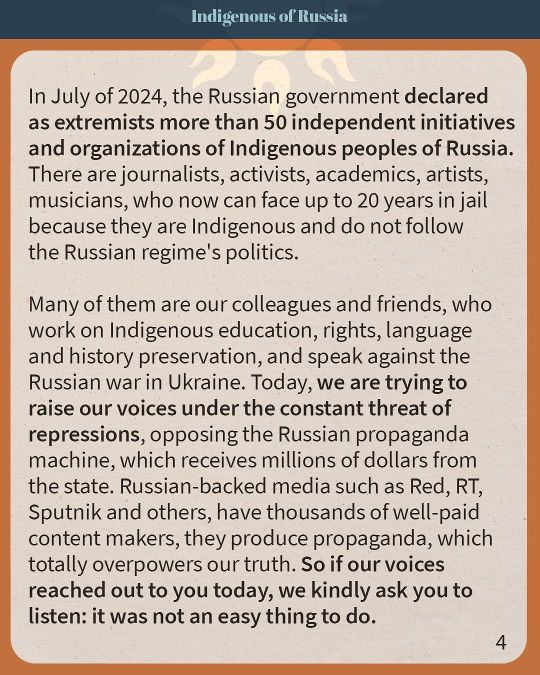
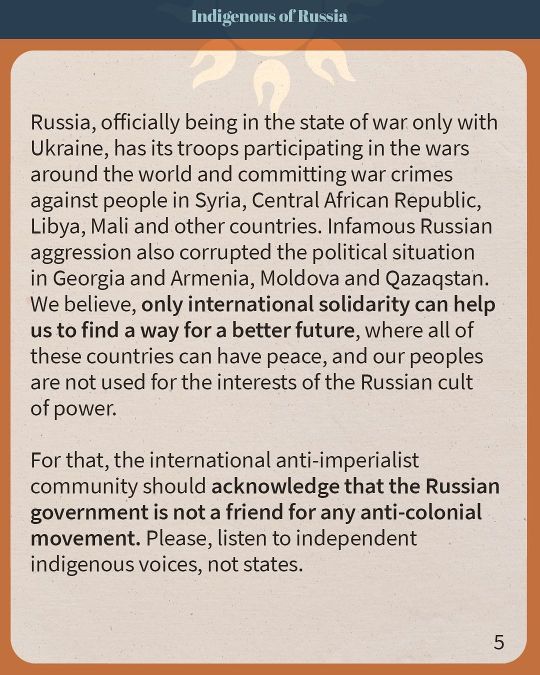
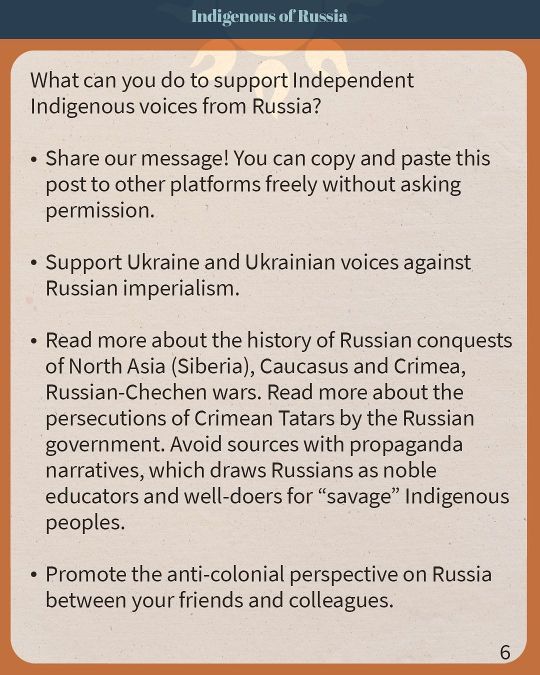
#indigenous#culture#important#indigenous russia#indigenous russian#fypシ#fypage#russia#colonization#landback#Land back#indigenous people#indigenous peoples#indigenous activism#native people#native rights#native#natives#fyppage#fypツ#fyp#tumblr fyp#native siberia#siberian indigenous#indigenous siberian#siberian#russian colonization#russian genocide#russian imperialism#russian
972 notes
·
View notes
Text

Pavel a Khudi Nenet from Yamalo-Nenets Autonomous District, Siberia, Russia. 2018
"The life of Nenets people in this area is based on following the reindeer as they move along ancient routes around the tundra. To survive the winter the reindeer eat a type of lichen known as reindeer moss, which may be covered in metres of snow. The Khudi Nenets brigade we visited have a herd of some 4,000 reindeer, with roughly 1,500 of them belonging to the Khudi Nenets themselves. The remaining 2,500 are owned by the ‘state farms’. If Khudi Nenets people slaughter a state-farm animal, its value is docked from their salary, but they are allowed to slaughter their own reindeer."
- Jimmy Nelson
161 notes
·
View notes
Text
i finished rereading the first four vorkosigan books (+ "the flowers of vashnoi" because ekaterin!!!), and you really have to feel for piotr vorkosigan because what a nightmare life, truly.
imagine you are born just in time for your world to be unified by dorca vorbarra and rediscovered by people from wider galaxy. things are finally looking good, for the first time in 600 years of isolation there is no more feudal infighting, and the promise of galactic medicine and technologies being available lightens everyone's perspectives. sure, your grandpa is called count pierre "le sanguinaire", but who doesn't have terrible relatives?
then you are 15, and suddenly your planet is attacked by the aggressive eugenecist space empire hell-bent on subjugating your people and turning them into disposable material for unethical genetic experiments. you flee into the mountains, away from your family, and create guerrilla forces from locals sworn to your dad, and it's really terrible for a very long time. you have no high-tech weapons and no food, you sleep in a cave in the dead of winter, and the cetagandans try everything (from carpet bombing to chemical weapons) to murder you.
but hey, at least you now have your bff ezar vorbarra, and (from the bff's words on his deathbed) it sounds like you two had so much fun between unimaginable horrors and despair, and it's not surprising, since no one really believes in death after life at 20. then the emperor makes you a general at the tender age of 22. fortunately for him, you & bff make a frighteningly competent dream-team, and the joke's on cetagandans.
then, several years later, you ask the emperor for weapons, because you still sleep on the bare cave floor, there are little resources, and every ghem on the planet is trying to murder you. he offers you the hand of his granddaughter instead, like it's some sort of twisted fairytale, but you grow to love your olivia more than anything, and the tide of war is finally turning, and you allow yourself to entertain the idea of peaceful life, and then...
the space eugenecist empire nukes your hometown, killing your mom, dad, surviving brothers, and two hundred thousand of your people. plus your bff (ezar) gets a radiation doze large enough for it to cause severe cancer thirty years later. great.
but you win! your district is in shambles, your capital is an irradiated crater, your castle is in ruins, but you win! the old dorca dies, and yuri ascends the throne, but politicking is secondary to the fact that you are alive.
yes, you are probably not entirely sane, and you've long forgotten what the peaceful times look like, but you are alive, just under 35, and your entire life is ahead of you. olivia is alive too, and ezar, and you now have three wonderful children, and the extended vorpatril-vorbarra family that hosts regular get-togethers. sure, your mom-in-law is a betan with all sorts of crazy ideas in her head, but she is not pierre vorrutyer. small mercies.
but then the new emperor goes mad, and decides to murder your entire family overnight. your brothers-in-law are gone, one of your sisters-in-law too, and all your nephews and nieces except little padma. but all of this pales in comparison to the facts that olivia is murdered, and that your heir and daughter lay dead beside her.
all you have left of her, of your house, of the family you've lost in vashnoi not a ten years ago, is aral, whom you keep by your side throughout the bloody civil war to put your bff on the throne.
but you win again. you are 43, and ezar vorbarra is now the emperor. you are responsible for the imperium's entire ground forces. you are also responsible for a severely traumatized boy of 13, and the only children you've interacted with without olivia's genle guidance were little messengers of guerilla companies.
what a mess.
#vorkosigan saga#lois mcmaster bujold#piotr vorkosigan#i was also reading /the lives of wonderful people/ books about mikhail vorontsov and alexander benkendorf last month and these two in#their younger years have the exact vibes of piotr and ezar during the first cetagandan war#chase after some poor cossacks on mail duty because you have mistaken them for enimies & you're twenty and long for military glory? yes#fearlessly hang about very dangerous mountains despite the threat of ambush? check#ask your boss to let you travel to YAKUTSK of all places because his inspection of southern siberia is boring and you#want to prove to yourself how cool you are? yes#agree to be someone's second on the duel and then inventively sell it to the emperor? also yes#volunteer for the dangerous expedition to the aegean sea? conquer the unconquerable ottoman fortress? yes and yes#and like..... despite it all they were also competent!#benkendorf ended french occupation of the netherlands in 10 days#and vorontsov was a commander at one of the most dangerous positions during the battle of borodino#during the battle of craonne vorontsov led the infantry and benkendorf the cavalry and together they held their own against napoleon!#but yes general-fieldmarchal count vorontsov the imperial governor of everything between modern moldova and the caspian sea#and cavalry general benkendorf who was the feared head of the gendarmes and before that aide-de-camp of emperor alexander#were also once crazy (and crazely talented) twenty year olds#which is basically what guerilla piotr and ezar are
180 notes
·
View notes
Text

Walking In A Winter Wonderland.
#winter#snow#landscapes#photography#forest#naturecore#photographers on tumblr#original photographers#aesthetic#omsk#frost#cold#pine trees#people#park#siberia#фотография#снег#зима#иней#��ейзаж#лес#прогулка#сосны#эстетика#canon#canon photography
93 notes
·
View notes
Text
Creating a purely carnivorous civilization is an interesting worldbuilding excercise because there are so many things about our current society that are basically the result of agriculture. For most settled societies, grain or their equivalent were virtually all their diet (there are so many phrases related to bread in Western culture, just like with rice in Asia and so on) and that was the way for milennia, compared to our more diverse diet. To imagine a completely carnivorous culture would be very interesting and probably not what you'd expect it to look.
Though there are historical precedents, the Mongols and the people of the Eurasian Steppe are your best thing to research if you're interested in societies where almost all the needs of life revolves around animals.
(remember as we say here "where the food comes from" is always the most important question you can ever ask)
#cosas mias#also the Inuit and the people of Siberia#the people of Patagonia had roots as a very important part of their diet I researched it a bit#worldbuilding#biotipo worldbuilding
103 notes
·
View notes
Text

Ainu family. Sakhalin. 1909
259 notes
·
View notes
Text

At the festival of Ysyah.Yakut woman pours kumys (1910)
#Россия#Russia#vintage#photography#якуты#саха#сахалар#yakut people#yakuts#people#Ыhыах#Ысыах#Ysyah#russian#Сибирь#Siberia#photo#nature#traditional#past#folk#history#black and white#vintage photography#1910s#1910#20th century
111 notes
·
View notes
Text


Femme Samoyède. Habit of a Samoyede woman and child subject to Russia in 1768.
from Voyage en Sibérie by Jean-Baptiste Chappe d'Auteroche as well as from A Collection Of The Dresses Of Different Nations, Antient and Modern. Particularly Old English Dresses. After The Designs of Holbein, Vandyke, Hollar, and others. With An Account of the Authorities, from which the Figures are taken; and some short Historical Remarks on the Subject. To which are added The Habits of the Principal Characters on the English Stage.
very cute kid coat with earsies ^_^
#nenets#siberia#samoyedic peoples#russian empire#samoyed#18th century#siberian indigenous people#mother and child#Voyage en Sibérie#folk clothing#traditional clothing#indigenous peoples#historical fashion#my upl#1700s
35 notes
·
View notes
Photo
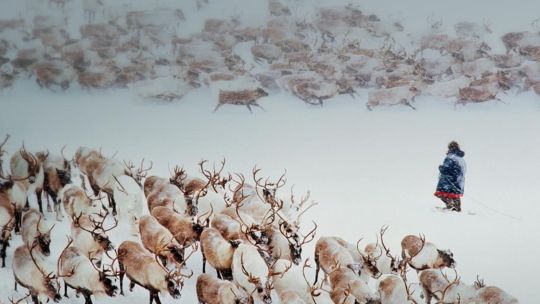
Reindeer and Chukchi reindeer herder in snow of Siberia, Russia
Photographed by Natalie Fobes
237 notes
·
View notes
Text
#indigenous#indigenous russia#nenets#siberia#native siberia#siberian#native people#natives#nenets tribe#siberian native#indigenous peoples#indigenous rights#land back#landback#tumblr fyp#fypage#fyp#fypシ#fypツ#culture#nomadic#nomad#foryou#interesting#Arctic#native rights#native#algorithm
24 notes
·
View notes
Text
Important read.
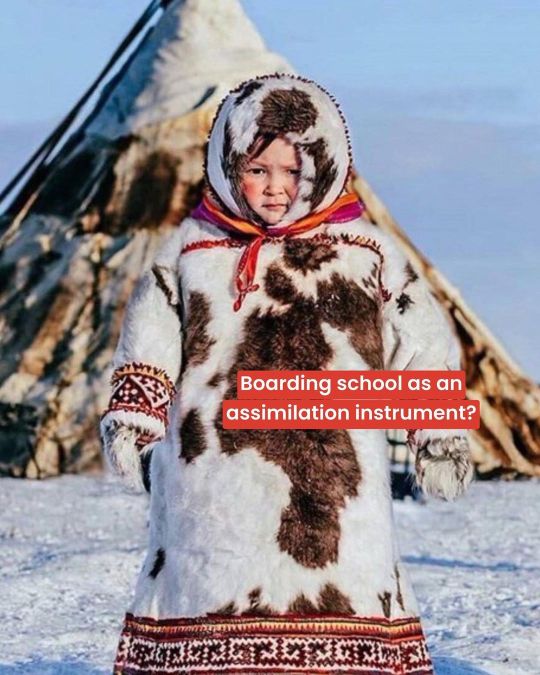
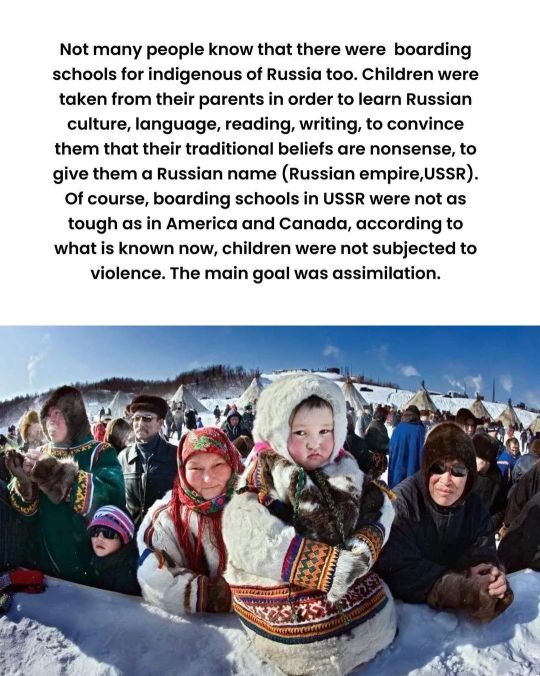

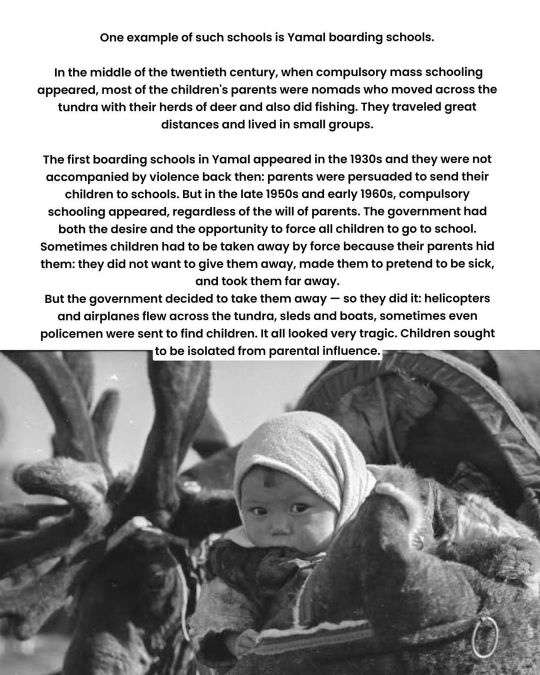
#indigenous#culture#indigenous russia#important#indigenous russian#fypシ#fypage#russia#colonization#landback#indigenous art#indigenous rights#indigenous people#indigenas#siberian music#siberia#siberian indigenous#indigenous siberian#siberian#native people#natives#nenets culture#nenet people#nenet#nenets#important post#russian colonization#russian imperialism#russian genocide#fypツ
519 notes
·
View notes
Text
#paleta post#folk costume#siberia#indigenous fashion#indigenous peoples#sakha#ulchi#nivkhi#evenki#tofalar#even#orogen#buryat#dolgan#tuvan#uilta#udege#semeyskie#tazy#nanai#ainu#chukcha#Alexander Khimushin#photography
9 notes
·
View notes
Note
hey ! You seem to know a lot about siberia so i have a question. When the russians conquered siberia, how much of the indigenous population died, i've heard that actually because siberia is for a huge part non-settled the natives were just overflooded by the russians kind of like in canada but i was wondering if it was true.
Also the cossacks played a big role in the conquest of siberia but i've seen people saying they were russian cossack which i find weird because i was always told cossacks were ukrainians and those who speak russian are just russified due to imperial russia policy. So i wanted to hear your thought because you look like to know about it
I hope it didn't sounded weird or arrogant btw ^^'.
Hey, thank you for this ask.
The Russian conquest of Siberia was a process that happened over several centuries, and it did have significant implications for the indigenous populations of the region. Historical accounts on the casualties can vary though, due to limited records at the time
When the Russians began their expansion into Siberia in the late 16th century, they encountered a diverse range of indigenous peoples. The interactions between the Russians and the natives were often characterised by conflict, disease, and displacement, which of course, led to the decline of some indigenous communities.
We must remember though: The impact of Russian colonisation varied from region to region and depended on factors such as the local policies of Russian authorities, the resistance of the native peoples, and the availability of natural resources in the area.
However, it is widely acknowledged that the conquest resulted in significant demographic changes and hardships for many indigenous groups of Siberia.
Siberia was indeed sparsely populated in comparison to its vast size.
However it's an oversimplification to just say that the reason why Siberia was flooded by Russians was just because Siberian peoples were sparsely populated and "non settled".
Further I have an issue with projecting concepts such as settled or non settled onto indigenous groups. The terms "settled" and "non-settled" are often rooted in a Eurocentric colonial perspective, implying that European-style sedentary settlements are more advanced or superior to nomadic or semi-nomadic lifestyles, and during discussions about indigenous peoples, these concepts are weaponised against them to downplay or even justify their colonisation.
The Russian conquest of Siberia had devastating effects on the indigenous populations. The arrival of the Russians brought deadly diseases that led to a significant reduction in native numbers. There were conflicts and violence with indigenous groups, causing loss of life and displacement. Forced labour and exploitation also took a toll, disrupting traditional ways of life, and many indigenous communities were displaced from their ancestral lands, leading to cultural disruption and challenges.
Regarding the comparison to Canada's history with its indigenous populations, there are some similarities in terms of the impacts of colonialism, disease, and displacement. Both regions experienced significant changes to the indigenous populations due to the arrival of European settlers and the expansion of colonial powers. So yes, it's similar, but not in the way that you said it was (both groups indigenous peoples being "non settled" so that's why they were flooded/successfully colonised).
Regarding the role of the Cossacks in the conquest of Siberia, you are correct that they played a crucial part. However it was primarily Russian Cossacks as opposed to Ukrainian Cossacks.
In the context of Siberian conquest, the Russian Cossacks were an instrumental force in expanding the Russian presence eastward.
On the origins of the Cossacks in case some people are confused: The Cossacks emerged as a social and military phenomenon in the 15th and 16th centuries, primarily in the frontier regions of the Polish-Lithuanian Commonwealth, the Grand Duchy of Moscow, and the Crimean Khanate.
Originally, the term "Cossack" (from the Turkic word "qazak") referred to individuals living on the borderlands, often engaged in various military and raiding activities. Over time, Cossack communities formed and theh developed their own structures and traditions. They were known for their horsemanship and guerrilla warfare tactics, which made them valuable assets for the expanding Russian state.
Cossacks were largely autonomous and governed themselves through a form of self-rule known as the "Cossack Host".
As the Russian Empire expanded into Siberia, the Russian Cossacks became instrumental in the conquest of the vast region. They were well-suited for long-distance travel and warfare in the challenging Siberian environment. The Russian Cossack expeditions into Siberia involved trade, hunting, and conflict with local indigenous peoples.
I need to make clear here that Cossacks were/are not a homogenous group. They came from various ethnic backgrounds, including Ukrainians, Russians, Belarusians, and others. While Ukrainian Cossacks were prevalent in the areas of modern-day Ukraine and Southern Russia, Russian Cossacks were more common in the areas closer to the core Russian territories.
I'm also sorry if it seems like I'm teaching you to suck eggs here but I just want to make this clear:
There is a historical distinction between Russian and Ukrainian Cossacks, but it's important to understand that both groups shared similar origins and cultural ties.
As previously mentioned, Cossacks were originally formed in the borderlands of the Polish-Lithuanian Commonwealth and the Grand Duchy of Moscow (early Russia). Over time, they developed different branches: the Ukrainian Cossacks and the Russian Cossacks being two of them.
The Ukrainian Cossacks were primarily based in the territories of modern-day Ukraine and Southern Russia. They played a significant role in defending the Ukrainian territories from various threats, including raids from the Crimean Tatars and the Ottoman Empire. The Ukrainian Cossacks established semi-autonomous communities with their own elected leaders called Hetmans. One of the most famous Ukrainian Cossack groups was the Zaporozhian Cossacks, who were based in the Zaporizhzhia region along the Dnieper River.
The Russian Cossacks, on the other hand, were based closer to the core Russian territories, particularly in the regions of the Don and the Volga rivers. They were instrumental in expanding Russian influence and control over the vast frontier areas, including Siberia. The Russian Cossacks were organised into various hosts (military units) and were involved in both military campaigns and other activities such as exploration, trade, and agriculture.
While Ukrainian and Russian Cossacks had regional differences and distinct traditions, they shared common cultural and historical roots as East Slavic-speaking people.
Note: terms "Ukrainian" and "Russian" Cossacks don't solely refer to the ethnic background of the individuals but rather to the geographical areas where their respective Cossack communities were predominantly located
As the Russian Cossacks ventured deeper into Siberia, they encountered diverse indigenous populations. Yes; the Russian Cossacks played a crucial role in expanding Russian influence and control over Siberia.
The Ukrainian Cossacks on the other hand, had very little involvement in the expansion into Siberia. The majority of their activities were focused on defending the territories of present-day Ukraine and Southern Russia.
So, yes. Russian conquest of Siberia did have a devastating impact on the indigenous populations. It was also primarily Russian cossacks who were involved in the expansion into Siberia, not Ukrainian Cossacks.
However, I do need to touch upon this. Throughout their history, Cossacks have also faced oppression and challenges under the Russian state. They experienced forced labour and serfdom in the 18th and 19th centuries, losing their traditional freedoms. Russian policies of Russification aimed to assimilate them into Russian culture. Cossack rebellions, like the Pugachev Rebellion, were brutally suppressed. The Russian government also disrupted their communities through demographic changes and curbed their autonomy over time.
So. In summary:
We can't put a number on exactly how many of the indigenous population died due to limited records.
It is an oversimplification to say that the "non-settled" nature of the indigenous peoples is the reason why Siberia became flooded by Russians
The Russian conquest of Siberia was devastating on the indigenous populations.
Projecting European colonialist concepts such as "settled" and "non settled" onto indigenous groups ignores their unique ways of life and implies that a European "settled" lifestyle is superior to the indigenous "non settled" lifestyle and is often used to downplay or even justify their colonisation.
There is a difference between Russian and Ukrainian Cossacks, Russian Cossacks were the ones who were primarily involved in the expansion of Siberia.
Cossack groups themselves have faced oppression under the Russian state.
I hope this was helpful.
#Russia#Ukraine#Cossacks#Cossack#Russian colonisation#Russian colonization#russian colonialism#Russian imperialism#Siberia#Colonization of Siberia#Russian Empire#Russian history#Ukrainian history#indigenous peoples#indigenous people of russia#Indigenous people of Siberia#Indigenous Siberians#Siberians#Native Siberians#Colonialism#Indigenous people#Cw long post#Long post
120 notes
·
View notes
Text







November, I Love You.
Despite all the shit you've given.
#street photography#snow#urban landscape#autumn#street photographer#original photographers#photographers on tumblr#photography#cityscape#omsk#siberia#snowflakes#fall vibes#nature#people#уличная фотография#ноябрь#осень#пейзаж#город#canon#canon photography
58 notes
·
View notes
Text
some of y’all do not hold grudges the way i do and i’m starting to fear that i am a problem and need to seek therapy
#bc why are so many people sobbing over lewis rn#it just put me in a hater mood#i was rooting for him over lando#but its always a bit of a ‘would i rather be stabbed or shot’ kinda vibe#i want lewis to finish every race like p20 or so and lando to finish every race in siberia#anyway at least i have max being sexy and talented
12 notes
·
View notes
Text

Indians of South America by National Geographic, 1982
46 notes
·
View notes